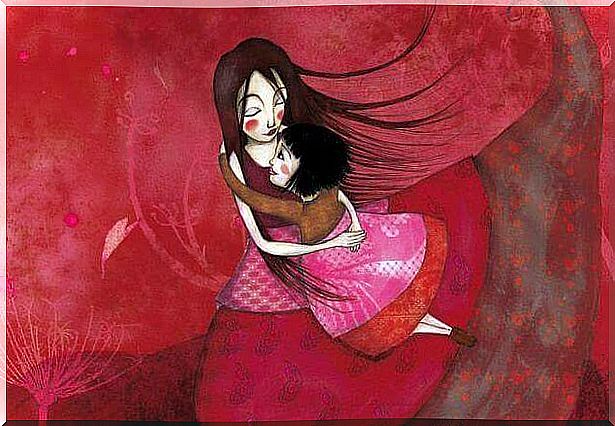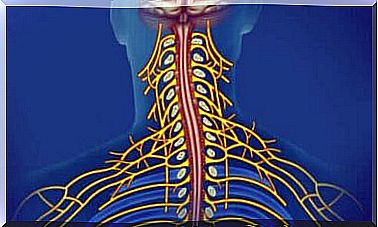What Is The Most Important Ingredient For A Happy Life?

What is the most important ingredient for a happy life? Science has offered us a wide range of answers to this question over the past 50 years. Some say “prosperity”, others say “religion” and still others think that the family is the most important thing.
However that may be, there is one factor that keeps coming up and has been the subject of much debate: the impact of our childhood on our development as adults. In the first few years of our life we acquire a view of the world that is difficult to change or even replace later on. This view of the world is in turn influenced by another, essential factor. Do you already have an idea what it might be?
This factor is about emotional attachment, warmth, and affection – in other words, love.
This aspect and the influence it has on whether one is happy was particularly the subject of a recent study by scientists from Harvard (Vaillant, 2012). The pivotal point of the study was the comparison of the influence of financial prosperity and warmth and affection on childhood. The lives of 200 men (yes, they were really only men) were examined over a period of 70 years. And some insightful results were found.

It has been found that childhood financial prosperity has very little impact on success, happiness, and ability to navigate adulthood. Parental affection and attention during childhood was the variable that had the strongest and most positive influence.
Some may ask, “But how can it come about that in some cases there is a lack of love? Do not all parents naturally feel love for their children within themselves? “
In addition to feeling loved, a child needs to feel that their parents know them well. Children need the feeling that their parents know them and that they love them anyway – for who they are, with all their strengths and weaknesses, their character traits, with everything they like and what they don’t like. Children need to feel that their parents see them and know them through and through.
Indeed, it gives rise to a kind of love that is true and sincere. It helps to develop a healthy self-confidence, which consists of a strong identity and a stable sense of self.
A question that is often asked is, “Did you know when you were a child that your parents loved you? Or did you just think that they would? ” That makes a huge difference when you consider that a person can know that they are loved without actually feeling it.
For example, if your parents not only attended to your basic needs such as clothing, food, education, and a roof over your head, but also talked to you and asked you how you are or what is moving you, then your parents really know and love you.

If this was your childhood, then you have a solid foundation for a successful life. You will probably then know yourself well, with all your personal preferences, your weaknesses and your strengths.
However, if your childhood did not look like it was just described, then it is possible that you did not get so many positive things along the way in your childhood. We often look back and don’t really know how to link our past, our present and our hopes for the future.
However, if we embrace the advantages of introspection, that can help us – provided we proceed correctly and prudently – if we not only think about what is holding us back, but also if we try to identify where the veiled and are hidden aspects that hinder us in other ways and that we had not even considered before.
Why does love play such an important role in the first years of our childhood? There are many reasons for this. Perhaps the first and most important is that it helps instill trust in life – not just trust in ourselves, but trust in others as well. In this context we are talking about “blind trust” and the ability to rely on and trust someone else without feeling like you have to keep checking what is going on behind your back.
A second aspect has to do with learning. A child who has experienced healthy love will also learn to express healthy love on their own. In addition, a child who is able to build solid and healthy relationships with others is also able to appreciate the effects of generosity, devotion, and unconditional support on their own.
In general, it can be said that children who received love could also enjoy their childhood. The number of toys or the type of school they attended doesn’t matter. If they were loved, then they were – at least for the most part – happy and had the feeling that they had everything they needed in this world – even if sometimes they didn’t get the little bells and whistles or some kind of candy.
Of course, we cannot say that a simple childhood guarantees success in adulthood. Neither does a sad or abusive childhood guarantee failure. One thing is certain, however: those who experienced love in their childhood, who felt loved and protected, are headed towards adult life with an important advantage.
With all of this in mind, as adults we are not only responsible for our own children, but for all children who play, laugh and cry. As part of society and humanity, we must always be aware of what we are sowing in the hearts of our children – because that is likely to shape their lives.









